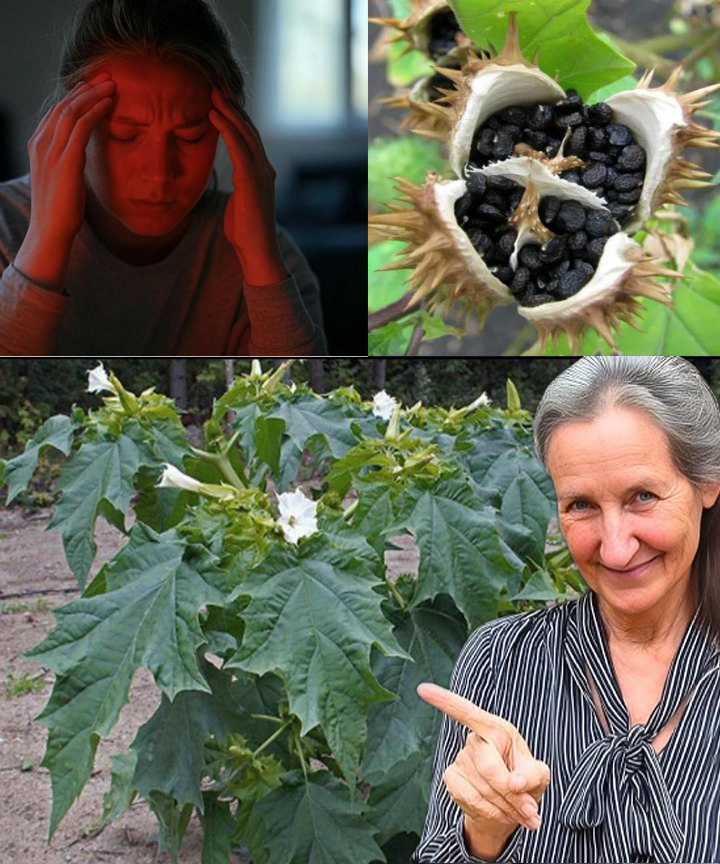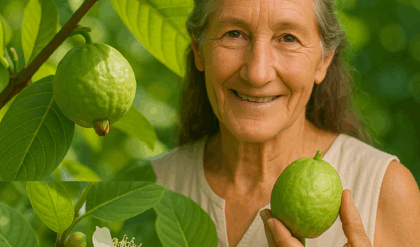Datura stramonium, commonly known as Jimson weed, thorn apple, or devil’s trumpet, is a plant native to North America but now found across the globe. Although its trumpet-shaped flowers and prickly seed pods may appear attractive, Datura stramonium is highly toxic and poses significant health risks. While it has been used in traditional medicine and spiritual practices for centuries, improper use or accidental ingestion can lead to severe poisoning, hallucinations, and even death. This article explores the toxic properties of Datura stramonium, the health risks it presents, and how to respond to poisoning.

What Makes Datura Stramonium So Dangerous?
The toxicity of Datura stramonium stems from the presence of several potent alkaloids, including atropine, hyoscyamine, and scopolamine. These alkaloids have powerful anticholinergic properties, meaning they block the neurotransmitter acetylcholine, leading to disruptions in the normal functioning of the central nervous system.
Toxic Alkaloids in Datura Stramonium:
- Atropine: Causes pupil dilation, increased heart rate, and hallucinations.
- Hyoscyamine: Affects smooth muscle activity, reducing bodily secretions and causing difficulties in urination and digestion.
- Scopolamine: Known for its hallucinogenic effects, scopolamine induces confusion, agitation, and disorientation.
Because of these toxic compounds, all parts of the Datura stramonium plant—seeds, flowers, leaves, and stems—are poisonous. Even small amounts can lead to significant health consequences.
Symptoms of Datura Stramonium Poisoning
Poisoning from Datura stramonium can manifest rapidly, typically within 30 to 60 minutes of ingestion. Symptoms may last for 24 to 48 hours and vary depending on the amount consumed and individual sensitivity. Common symptoms of poisoning include:
- Dry mouth and skin: Suppression of saliva and sweat glands.
- Dilated pupils: Blurred vision or light sensitivity.
- Rapid heartbeat (tachycardia): A dangerously elevated heart rate.
- Delirium and hallucinations: Intense, frightening hallucinations and paranoia.
- Confusion and disorientation: Difficulty in remembering or making coherent decisions.
- Severe agitation and restlessness: Erratic and uncontrollable behavior.
- Seizures: In extreme cases, seizures or convulsions may occur.
- Coma and death: In cases of severe poisoning, coma or death may result.
Long-Term Health Effects
For those who survive Datura poisoning, lingering effects can include prolonged confusion, memory loss, and psychological issues such as anxiety or paranoia. While some individuals may recover fully, others may experience persistent cognitive and emotional disturbances, particularly after a severe reaction.
Accidental Ingestion and Risks to Children and Pets
Accidental ingestion of Datura stramonium is a significant concern, especially for children and pets. The plant’s large, attractive flowers and seed pods may tempt curious children or animals, leading to accidental consumption. Children are particularly vulnerable to the toxic effects due to their smaller body size. Even minimal exposure can result in severe reactions.
- Pets: Dogs and cats may also be attracted to the plant’s seeds or leaves. If consumed, they may exhibit symptoms such as drooling, vomiting, uncoordinated movements, and hallucinations.
Recreational Use and Associated Risks
Despite its toxicity, some individuals seek out Datura stramonium for its hallucinogenic effects. These individuals may consume parts of the plant in an attempt to experience altered states of consciousness, unaware of the extreme risks involved. The hallucinations induced by Datura are often vivid but terrifying, leading to dangerous behaviors or self-harm. The inability to distinguish between hallucinations and reality makes this plant especially hazardous.
The toxic dose of Datura varies widely between individuals, making recreational use incredibly dangerous. Even experienced users cannot reliably gauge a “safe” amount, as the potency of the alkaloids fluctuates depending on the plant’s age and growing conditions.
Treatment for Datura Stramonium Poisoning
Datura stramonium poisoning is a medical emergency and requires immediate attention. If poisoning is suspected, seek emergency medical assistance without delay. Treatment typically includes:
- Activated charcoal: Administered early to absorb any remaining toxins in the digestive system.
- Supportive care: Includes intravenous fluids, sedatives, and monitoring of heart rate and breathing.
- Physostigmine: In severe cases, this antidote can help reverse the effects of anticholinergic toxicity.
Without prompt medical intervention, Datura poisoning can be fatal.
Conclusion
Datura stramonium is an incredibly toxic plant with serious health risks. Its alkaloids—atropine, hyoscyamine, and scopolamine—disrupt the central nervous system and can cause hallucinations, delirium, rapid heart rate, seizures, and death. Accidental ingestion is especially dangerous for children and pets, and the recreational use of Datura carries unpredictable risks due to the plant’s variable toxicity.
Education about the dangers of Datura stramonium is crucial to prevent poisoning and ensure proper medical response in case of exposure. Always be cautious around plants like Datura, and if you suspect poisoning, seek medical attention immediately to prevent life-threatening consequences.
Staying informed about the plants in your environment can protect both you and your loved ones from the severe risks associated with this dangerous plant.





